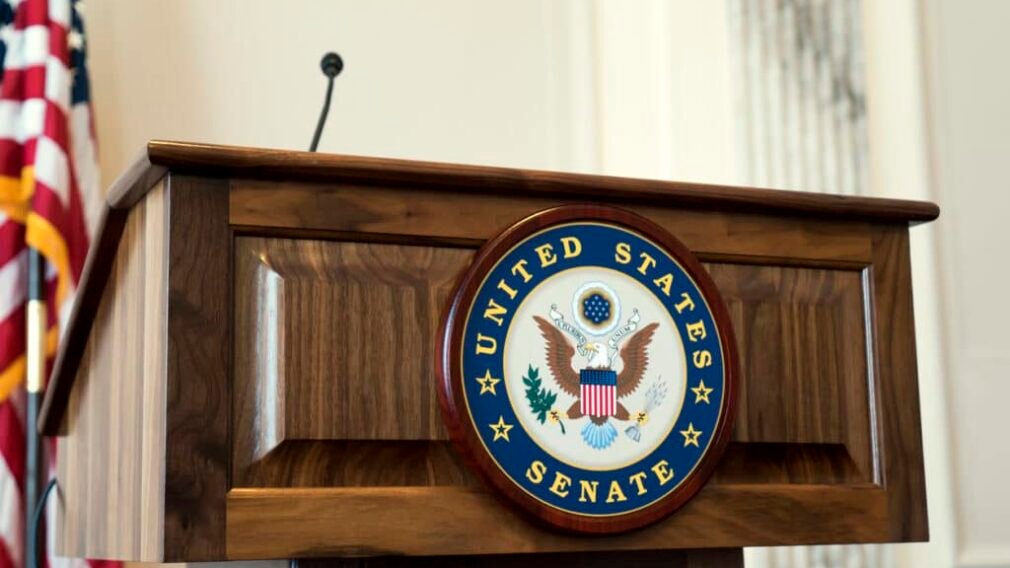Sports Betting Under the Microscope: Senate Judiciary Committee Tackles the Issue
On December 17, 2024, the U.S. Senate Judiciary Committee convened to examine the far-reaching impact of legalized sports betting in the United States. Titled “America’s High-Stakes Bet on Legalized Sports Gambling”, the hearing marked the Senate’s second inquiry into sports betting since the repeal of PASPA (Professional and Amateur Sports Protection Act) in 2018.

The Growing Spotlight on Sports Betting
On December 17, the Senate Judiciary Committee gathered for a hearing that put the booming sports betting industry under a microscope. Chaired by Senator Dick Durbin, the session—aptly titled “America’s High-Stakes Bet on Legalized Sports Gambling”—focused on issues like harassment of athletes, the sharp rise in gambling addiction, and how major industry players like FanDuel and DraftKings operate.
At the center of the discussion was the SAFE Bet Act, a bill introduced earlier this year that proposes a nationwide set of standards for the industry. While some see the Act as much-needed oversight, others argued that states are already handling things well enough on their own.
Athlete Harassment: The Pressure of Prop Bets
One of the biggest concerns raised during the hearing was how sports betting—particularly prop bets—affects athletes. Prop bets allow gamblers to wager on individual player performances, like how many points a college basketball player scores or whether a quarterback misses a pass.
NCAA President Charlie Baker made it clear that prop bets are fueling a wave of harassment against athletes, particularly at the collegiate level. He described how athletes, especially student-athletes, are being targeted with abusive messages after games where they don’t meet specific betting expectations. It’s not just online strangers causing the problem—classmates and peers are also piling on the pressure.
Baker pushed for a nationwide ban on college prop bets, a step he said would significantly reduce the harassment these players face. NFLPA representative Johnson Bademosi echoed that sentiment, explaining that betting on negative outcomes—like a missed shot or a failed attempt—dehumanizes athletes and adds unnecessary stress.
Senator Durbin and others on the committee were quick to agree that prop bets are a major part of the problem and need to be addressed sooner rather than later.
Addiction on the Rise: A Growing Crisis
Another key theme was the rising rate of gambling addiction. Experts warned that problem gambling has become a public health crisis, driven by the convenience of online betting and aggressive advertising that often targets young adults.
Keith Whyte from the National Council on Problem Gambling highlighted how funding for addiction prevention and treatment is still critically low, despite the industry’s massive growth. Public health advocate Harry Levant added that modern betting platforms use AI and micro-betting to keep gamblers hooked, offering nonstop opportunities to place bets on even the smallest moments of a game.
Both Whyte and Levant stressed that Congress needs to take this issue seriously by providing better resources and creating clear rules to curb harmful practices.
The SAFE Bet Act: National Standards or State Oversight?
The SAFE Bet Act, proposed by Senator Richard Blumenthal, aims to introduce federal guardrails for the sports betting industry. The bill would establish minimum standards for things like advertising practices, banning certain types of bets, and funding programs to address gambling addiction.
Supporters of the bill, like Baker and Bademosi, argued that national standards are necessary to fill the gaps left by inconsistent state laws. They believe a unified approach would help protect athletes and consumers more effectively.
On the other hand, David Rebuck, the former gaming regulator from New Jersey, pushed back against the idea of federal oversight. He pointed to states like New Jersey, which have built strong systems to regulate sports betting on their own. Rebuck argued that imposing federal rules could disrupt the progress states have already made.
FanDuel, DraftKings, and Competition Concerns
The committee also turned its attention to FanDuel and DraftKings, the two giants that dominate the U.S. sports betting market. Senators Mike Lee and Peter Welch raised concerns about whether these companies’ massive market share is stifling competition and shutting out smaller operators.
While no representatives from FanDuel or DraftKings were present at the hearing, the issue was flagged as one that could require further investigation down the line.
American Gaming Association Pushes Back
The American Gaming Association (AGA), which represents the U.S. gambling industry, issued a statement immediately following the hearing, expressing disappointment that no industry voices were included among the witnesses.
Joe Maloney, AGA’s Senior Vice President of Strategic Communications, said:
“Today’s hearing notably lacked an industry witness. This unfortunate exclusion leaves the Committee and the overall proceeding bereft of testimony on how legal gaming protects consumers from the predatory illegal market and its leadership in promoting responsible gaming and safeguarding integrity.”
The AGA reiterated its position that the current state-led regulatory framework is both effective and robust, arguing that states are best equipped to manage the industry while addressing issues like responsible gambling and consumer protection.
State vs. Federal
Throughout the hearing, there was a clear divide between those who support federal oversight and those who believe states should continue to lead the way. Proponents of federal regulation argued that national standards would address inconsistencies, protect consumers, and ensure fairness. Critics, like Rebuck, maintained that states are already doing a good job and that federal involvement could create unnecessary complications.
As the hearing wrapped up, Senator Durbin made it clear that this was just the beginning of Congress’s efforts to tackle the challenges posed by legalized sports betting.
Recommended
